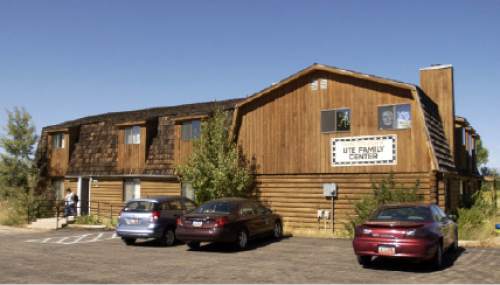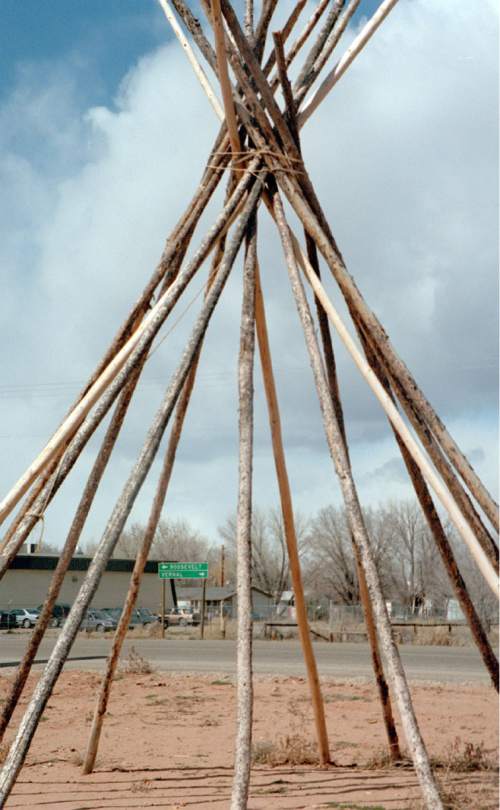This is an archived article that was published on sltrib.com in 2015, and information in the article may be outdated. It is provided only for personal research purposes and may not be reprinted.
In a strongly worded opinion released Tuesday, a federal appeals court ruled that Utah prosecutors have no business going after Ute tribal members who commit crimes on Indian land.
The court's decision, for the moment, halts such prosecutions. The court sent the case back to a federal judge in Salt Lake City who has been asked by attorneys for the tribe to issue a permanent injunction against the prosecutors.
The lawsuit arose after the Ute Indian Tribe of the Uintah and Ouray Reservation sued several Utah counties, accusing the counties of prosecuting crimes in areas where they have no jurisdiction — where only the federal government and the Ute Tribal Court can bring criminal charges.
The 10th Circuit Court of Appeals in Denver sided with the reservation, saying that they had already ruled years ago that the tribal land was off-limits to state officials. The justices added that the appeal was a "reminder" to state and county officials to respect and accept previous rulings — and if they don't, they can expect court sanctions.
The boundary dispute examined by the 10th Circuit dates back nearly 40 years, to a lawsuit filed by the Ute Tribe against the state of Utah and several local governments.
In that case, the appeals court ruled the tribe still had jurisdiction over three regions in dispute: the Uncompahgre Reservation, the Uintah Valley Reservation and some national forest areas.
The state and local governments appealed, but when the U.S. Supreme Court refused to hear their case, "that 'should have been the end of the matter,'" wrote Judge Neil Gorsuch.
"It wasn't," Gorsuch added.
Instead, state officials began prosecuting tribal members for alleged crimes within the tribal boundaries set by the 10th Circuit, setting off more litigation. Eventually, the 10th Circuit ruled one of the three contested areas — the Uintah Valley Reservation — was no longer under tribal jurisdiction.
"Naturally, the state wanted more," Gorsuch wrote. "It asked this court to extend [that] reasoning to the national forest and Uncompahgre lands" too.
The 10th Circuit refused, but the local governments once again began prosecuting tribal members for alleged crimes inside those boundaries, Gorsuch wrote.
Tribal member Lesa Jenkins, for example, was charged in Wasatch County Justice Court for alleged traffic offenses in a national forest area where the 10th Circuit said the tribe had jurisdiction.
The tribe sued the state, Wasatch County and various officials; then the state, Uintah and Duchesne counties sued the tribe.
In resolving the competing claims, the 10th Circuit sided solidly with the tribe and warned the local governments against challenging the tribal boundaries again.
"The time has come to respect the peace and repose promised by settled decisions," the opinion reads. "In the event our hope proves misplaced and the defendants persist in failing to respect the [previous] rulings ... they may expect to meet with sanctions in the district court or in this one."
Speaking on behalf of the tribe council, Chairman Shaun Chapoose said in a statement Tuesday that the council welcomes the ruling.
"The Ute Tribe is hopeful that the State and counties will heed this warning and follow the Tenth Circuit mandates and opinion issued today," Chapoose said. "..Now that the Tenth Circuit has spoken, it is our hope that the law is clear with respect to the Tribe's authority, and we hope the spirit of the law can be carried out in future negotiations with our state and county counterparts."
Uintah County Attorney Mark Thomas said Tuesday that his office has not yet decided how to proceed at this point after the 10th Circuit Court ruling.
"I think it's fair to say Uintah County may have a disagreement with the conclusion that the court has drawn at this point," he said. "We'll have to more carefully analyze it to see how we proceed with it."
Thomas said that the appeals court had a "relatively narrow" set of issues to consider, which revolved around U.S. District Court Judge Dee Benson's decision to temporarily halt the prosecutions.
The appeals court only reversed that decision, meaning only a preliminary injunction is in place that will bar state prosecutors from filing charges against tribal members who commit crimes on Indian land.
U.S. District Judge Bruce Jenkins will decide whether the injunction will become permanent.
Jesse Trentadue, who represents Duchesne and Wasatch counties in court, declined to comment Tuesday because he had not yet spoken to his clients about the ruling. Attorneys for the Ute Indian Tribe did not respond to requests for comment.
Twitter: @jm_miller





